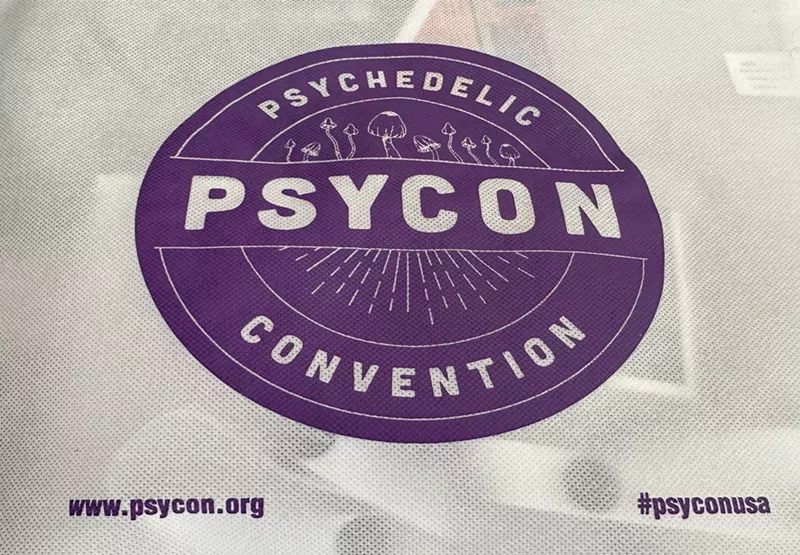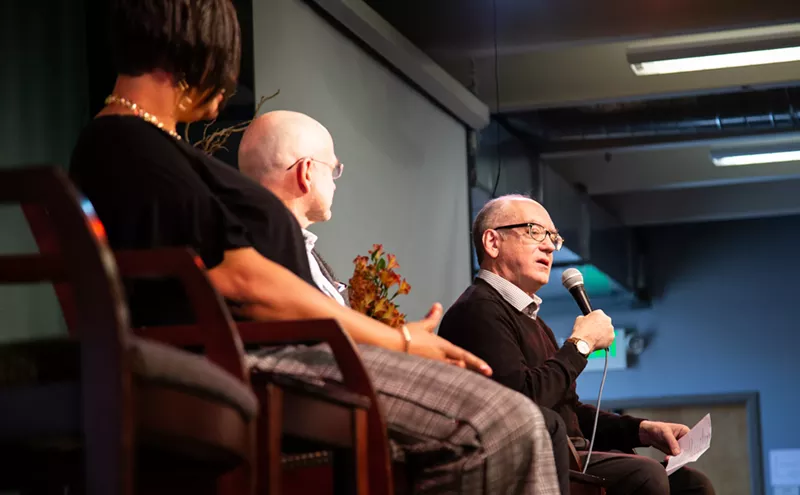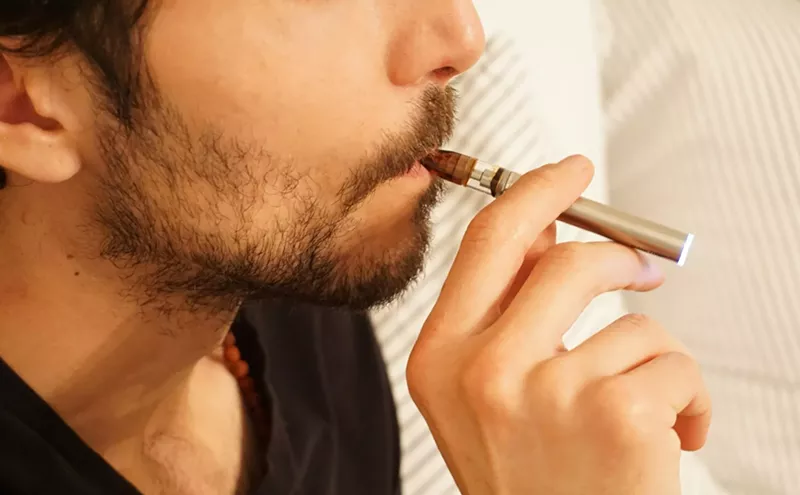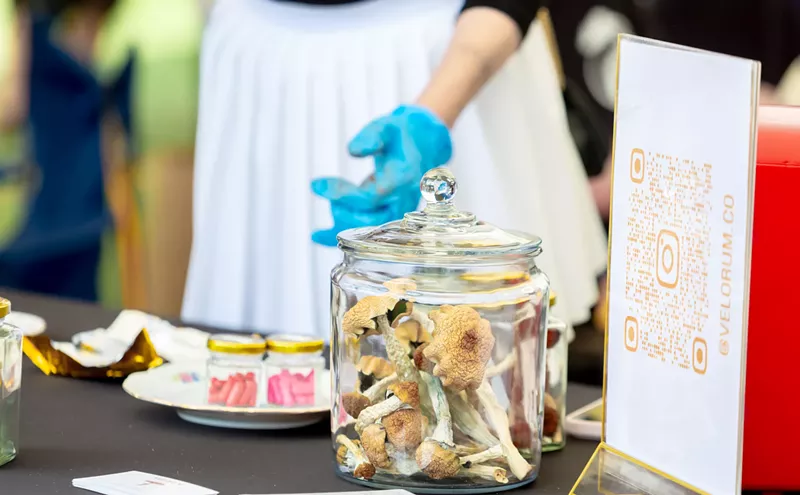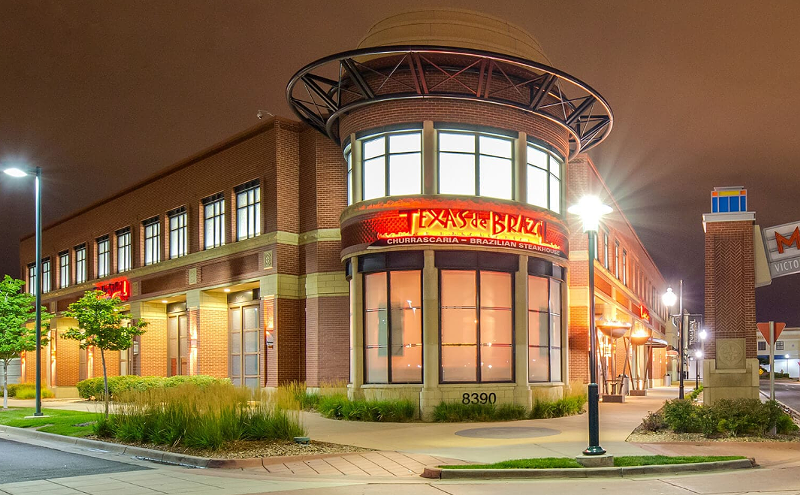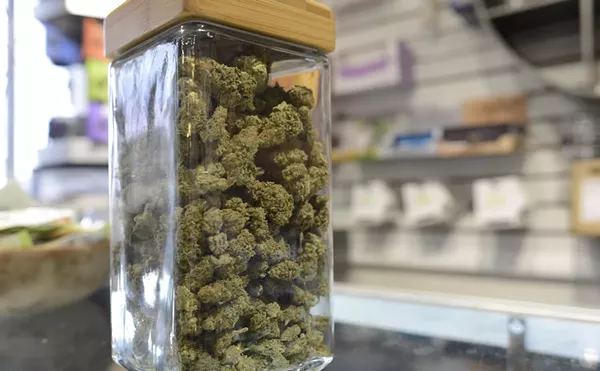Psychedelics are all the rage in Colorado. Or are they?
A few months after celebrities, politicians and over 12,000 other people flocked to the Colorado Convention Center for a major psychedelics conference, the organizers of PsyCon were hoping that interest in psilocybin, ibogaine, DMT and other psychedelics with medical and commercial promise would remain high. Organized by a group that readily admits it has more experience in trade shows than psychedelics, PsyCon was presented as a smaller, more intimate expo for people newer to the psychedelics trade.
Although PsyCon still has more than a day before it leaves town, the organizers' estimated attendance of 2,500 people looks like a hard goal to reach. Still, there are plenty of earnest professionals and mycology lovers on hand at the convention center. Here are five lessons we took away from our visit:
Addiction recovery is a driving force
The first day of PsyCon, panels focused on the potential that psychedelics have in battling addiction. From psilocybin to ibogaine to ketamine to ayahuasca, the buzz surrounding addiction recovery and psychedelics is one of the driving forces of legalization; in Colorado, where dozens of federally regulated ketamine clinics operate, and DMT (a compound of ayahuasca) as well as psilocybin, mescaline and ibogaine are now decriminalized, that buzz is strong. Psilocybin clinics and healing centers in this state will begin receiving licenses as early as 2024, while ibogaine, an alkaloid used to counter opioid dependence, has been circled by Colorado lawmakers for a faster timeline pushing to medical psychotherapy use.
Legal mushrooms and cannabis share many of the same obstacles
Opening the door to legal psychedelics comes with a number of questions and challenges for all parties involved. For businesses working with psilocybin mushrooms and other natural psychedelic medicines, that means blocks to banking servicing and tax deductions, increased attention to fungi and plant genetics, and a new framework for psychedelic contaminant and potency testing.
Legal cannabis has been confronted by all of these issues, too, achieving varied success across the board. Federal prohibition for cannabis left a void of information surrounding the plant's genomes, which has slowly been addressed, while lab testing to ensure consumer safety has evolved over time, too. Retail cannabis is now tested for potency and contaminants such as pesticides, mold and residual heavy metals. Banking and tax deductions for legal cannabis businesses are still technically illegal, however, with the majority of large banks and credit-card processors refusing to service cannabis companies because of the plant's federal status.
In the meantime, cannabis-testing labs are already being certified to test psilocybin mushrooms in Colorado, and scientific firms are sprouting up to research specific mushroom strains and their genetic makeup. Several of these businesses are on display at PsyCon, but many of them are still waiting for state licensing rules to become established in Colorado later this year. As mushrooms and other psychedelics remain federally illegal, though, expect the industry's banking and tax woes to continue, just as the marijuana industry's have.
But psychedelics don't have the same blind pull
PsyCon organizers predicted around 2,500 attendees, but the discussion rooms, panels without in-person speakers and small exhibit hall seem to have drawn a much lower attendance. The Multidisciplinary Association for Psychedelic Studies (MAPS) conference attracted around 12,000 people inside the same building on its first day in June, including speakers like Aaron Rodgers and Governor Jared Polis.
It was hard for attendees not to compare the two expos. "This isn't what I expected at all," said one attendee at PsyCon's September 29 gathering.
During Colorado's early years of recreational cannabis legalization, any event with the word "cannabis" included was sure to garner media attention and a sold-out venue; whether the event was professionally organized or not was irrelevant. Less than a year into legal psychedelics, Colorado conferences don't have the same pull.
Grain bag sales are booming
Now that psilocybin is in vogue, grain bags inoculated with spores have never been more popular in Colorado. You can find them for sale on the internet or on a random Sunday during a public class at your local brewery. Homegrown magic mushrooms are accessible, too, as long as the buyer and seller are careful to state that the transaction is for research purposes. (Wink.)
According to Zach Dorsett, founder of inoculated grain-bag suppler Wonderbags, business has been booming since Coloradans voted in favor of the psychedelics initiative last November. "We launched in February, and it's been going great," he says. "People don't know how clean their environment needs to be, so we take care of that by sending the bags ready to go."
Customers of Wonderbags and similar businesses simply take the bags home, keep them in their recommended storage environment and watch the shrooms bloom.
A shoe will drop soon with psilocybin edibles
Buying ready-to-grow mushrooms over the internet sounds great in theory, and Dorsett is confident that what his company is doing is legal not just in Colorado, but federally, because it's labeled for research. Still, after seeing how easy it is to buy, grow or infuse psilocybin, I can't help but remember Colorado's early problems with THC edibles in 2014 and 2015. Shortly after recreational pot shops opened, reports of uneducated edibles eaters "overdosing" and freaking out became pretty regular, and state officials quickly reacted to the problem. Now recreational THC edibles must come in 100-milligram packages, at ten milligrams of THC per serving, and cannot be shaped like fruit, animals or humans, in order to dissuade child consumption.
Colorado's new psychedelic laws don't allow for a retail sector, so we won't see licensed dispensaries selling psilocybin edibles any time soon. But these products are already out there and easy to procure for any non-square with internet access. Whether it's media headlines, an increase in 911 calls or law enforcement claims, something will push toward more active psilocybin product regulation soon.

Audio By Carbonatix
[
{
"name": "GPT - Billboard - Slot Inline - Content - Labeled - No Desktop",
"component": "23668565",
"insertPoint": "2",
"requiredCountToDisplay": "2"
},{
"name": "STN Player - Float - Mobile Only ",
"component": "23853568",
"insertPoint": "2",
"requiredCountToDisplay": "2"
},{
"name": "Editor Picks",
"component": "17242653",
"insertPoint": "4",
"requiredCountToDisplay": "1"
},{
"name": "Inline Links",
"component": "18838239",
"insertPoint": "8th",
"startingPoint": 8,
"requiredCountToDisplay": "7",
"maxInsertions": 25
},{
"name": "GPT - 2x Rectangles Desktop, Tower on Mobile - Labeled",
"component": "24956856",
"insertPoint": "8th",
"startingPoint": 8,
"requiredCountToDisplay": "7",
"maxInsertions": 25
},{
"name": "Inline Links",
"component": "18838239",
"insertPoint": "8th",
"startingPoint": 12,
"requiredCountToDisplay": "11",
"maxInsertions": 25
},{
"name": "GPT - Leaderboard to Tower - Slot Auto-select - Labeled",
"component": "17676724",
"insertPoint": "8th",
"startingPoint": 12,
"requiredCountToDisplay": "11",
"maxInsertions": 25
}
]

